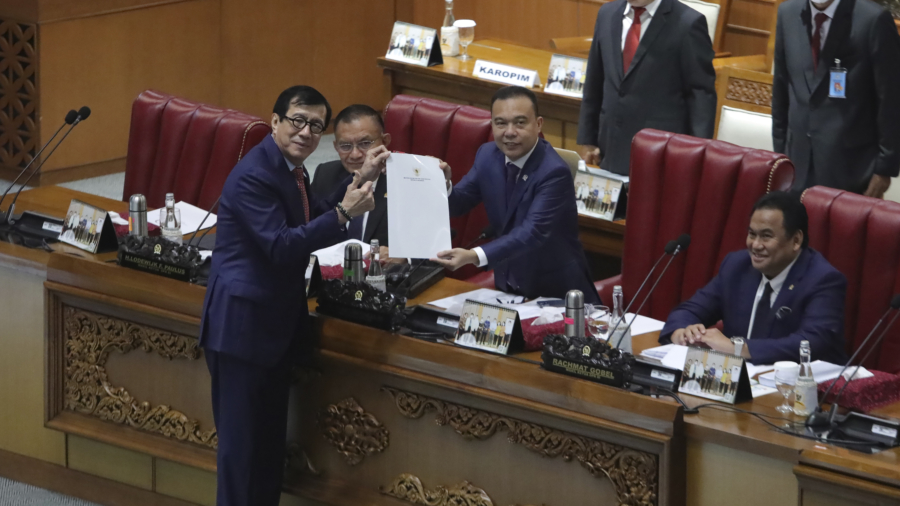JAKARTA, Indonesia—Indonesia’s Parliament unanimously voted on Tuesday to ban sex outside of marriage and insulting the president and state institutions.
Once in force, the bans will affect foreign visitors as well as citizens. They’re part of an overhaul of the country’s criminal code that has been in the works for years. The new code also expands an existing blasphemy law and keeps a five-year prison term for deviations from the central tenets of Indonesia’s six recognized religions: Islam, Protestantism, Catholicism, Hinduism, Buddhism, and Confucianism. The code still needs approval from the president, and the government says it will not be fully implemented for several years.
The amended code says sex outside marriage is punishable by a year in jail and cohabitation by six months, but adultery charges must be based on police reports lodged by a spouse, parents, or children.
Citizens could also face a 10-year prison term for associating with organizations that follow Marxist-Leninist ideology and a four-year sentence for spreading communism.
The revised code also preserves the death penalty, despite calls from the National Commission on Human Rights and other groups to abolish capital punishment. But the new code adds a 10-year probationary period to the death penalty. If the convict behaves well during this period, their sentence will be reduced to life imprisonment or 20 years’ imprisonment.
The code maintains a previous ban on abortion, but updates it to add exceptions already provided in a 2004 Medical Practice Law, for women with life-threatening medical conditions and for rape, provided that the fetus is less than 12 weeks old.
Under Indonesian regulations, legislation passed by Parliament becomes law after being signed by the president. But even without the president’s signature, it automatically takes effect after 30 days unless the president issues a regulation to cancel it.
President Joko Widodo is widely expected to sign the revised code in light of its extended approval process in Parliament. But the law is likely to gradually take effect over a period of up to three years, according to Deputy Minister of Law and Human Rights Edward Hiariej.
“A lot of implementing regulations must be worked out, so it’s impossible in one year,” he said.
The code restores a ban on insulting a sitting president or vice president, state institutions, and the national ideology. Insults to a sitting president must be reported by the president and can lead to up to three years in jail.
Hiariej said the government provided “the strictest possible explanation that distinguishes between insults and criticism.”
The current penal code is a legacy of Dutch colonial administration. Updates have languished for decades while legislators in the world’s biggest Muslim-majority nation debated how to adapt the code to its traditional cultures and norms. Indonesia proclaimed independence on Aug. 17, 1945.
A previous revised code was poised for passage in 2019, but President Widodo urged lawmakers to delay a vote amid mounting public criticism that led to nationwide protests in which tens of thousands of people participated. Opponents said it contained articles that discriminated against minorities and that the legislative process lacked transparency. Widodo instructed Law and Human Rights Minister Yasonna Laoly to obtain input from various groups as lawmakers debated the articles.
A parliamentary taskforce finalized the bill in November and lawmakers unanimously approved it on Tuesday, in what Laoly praised as a “historic step.”
“It turns out that it is not easy for us to break away from the colonial living legacy, even though this nation no longer wants to use colonial products,” Laoly said in a news conference.
“Finalizing this process demonstrates that even 76 years after the Dutch Criminal Code was adopted as the Indonesian Criminal Code, it is never too late to produce laws on our own,” Laoly said. “The Criminal Code is a reflection of the civilization of a nation.”


